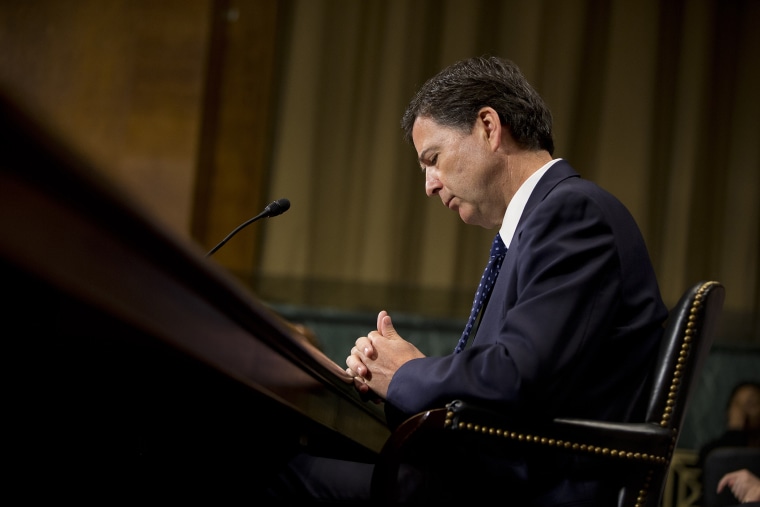When Hillary Clinton on Tuesday described the fatal shooting at a historic church in Charleston as "an act of racist terror perpetrated in a house of God," she made a notable break with FBI Director James Comey, who said that he did not think the murders constitute terrorism. Clinton's take puts her out front of the FBI, which has the authority to investigate all domestic terror attacks.
The distinction matters, since terrorism is a federal charge prosecuted in federal courts. The man who perpetrated the shooting, Dylann Storm Roof, is currently in the South Carolina state court system, being held on homicide and guns charges. Meanwhile, federal authorities are conducting a parallel hate crimes investigation.
“Terrorism is an act of violence done or threatened to in order to try to influence a public body or the citizenry, so it’s more of a political act, and again based on what I know," Comey said at a press conference on Friday. “I don’t see it as a political act.”
RELATED: Hillary Clinton: Charleston massacre an act of ‘racist terrorism’
Despite the FBI director’s comments, the Obama administration has emphasized that the federal investigation is ongoing and could expand to include other potential charges. The White House referred to a Friday statement by Attorney General Loretta Lynch’s spokesperson, Emily Pierce, stating that the Justice Department is “looking at this crime from all angles, including as a hate crime and as an act of domestic terrorism.”
While the debate turns on a legal definition, it also carries palpable racial and religious overtones. While the U.S. defines terrorism as violence intended to intimidate or terrorize to advance a political goal, many critics and legal experts note that it is more quickly and vociferously applied to certain suspects — such as Muslim attackers — than others.
In the wake of the Charleston murders, Brian Phillips, a researcher on terrorism, raised this tendency. “Terrorism is already used without hesitation for many non-white — especially Muslim —actors who carry out violence consistent with [its official] definition,” he wrote in The Washington Post. “Few media sources use the term for violent actors motivated by, for example, white supremacy or anti-government rage,” he argued, “to avoid the term becoming simply an insult, or worse a racist insult, it should be used whenever the basic criteria apply, or not at all.”
Comedian Jon Stewart made the same point, foregoing his usual humorous take, to highlight that "disparity for response. He, too, called the shooting a "terrorist attack."
By clearly referencing the Charleston attacks as “racist terrorism” in an address about racial divisions and the battle over the Confederate flag, Clinton is evincing a willingness to lead on a sensitive issue — one that has bedeviled law enforcement and commentators alike.
